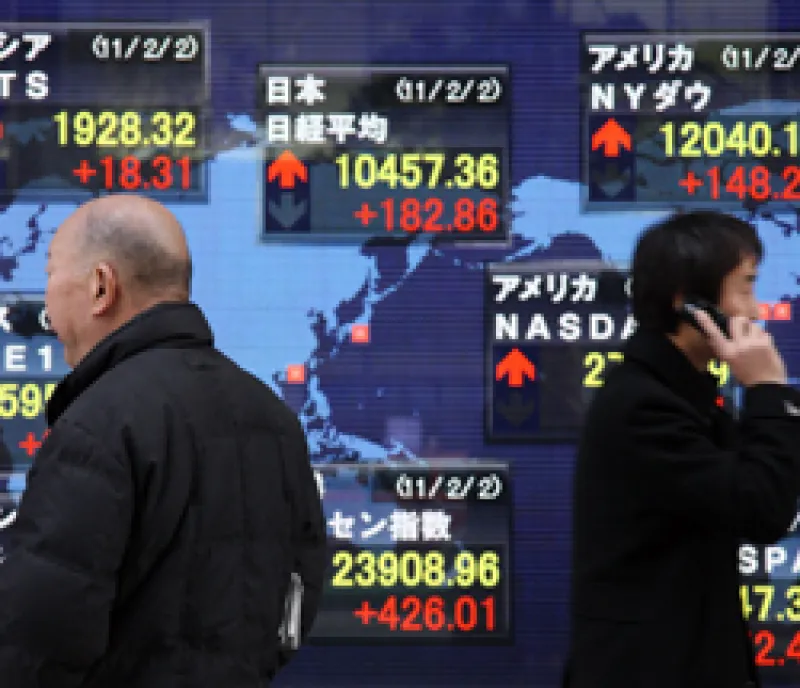
Pedestrians walk past an electric stock board displaying the closing figure of the Nikkei 225 Stock Average in Tokyo, Japan, on Wednesday, Feb. 2, 2011. Japanese stocks gained, driving up the Topix index by the most since Nov. 18, after company earnings improved and U.S. manufacturing expanded, boosting confidence in the global economic recovery. Photographer: Tomohiro Ohsumi/Bloomberg
Tomohiro Ohsumi/Bloomberg

